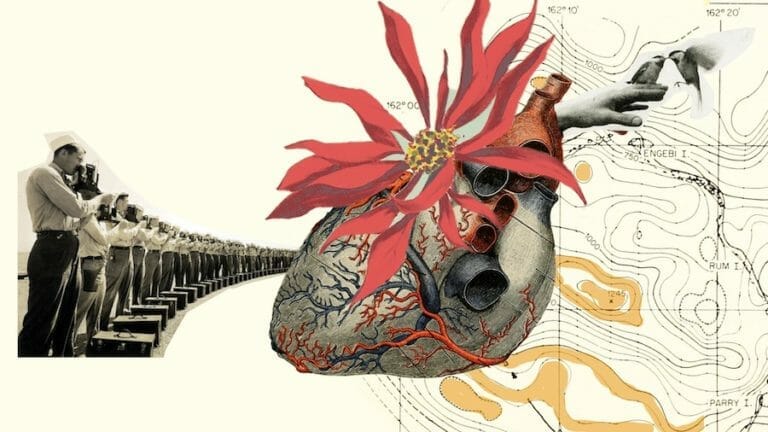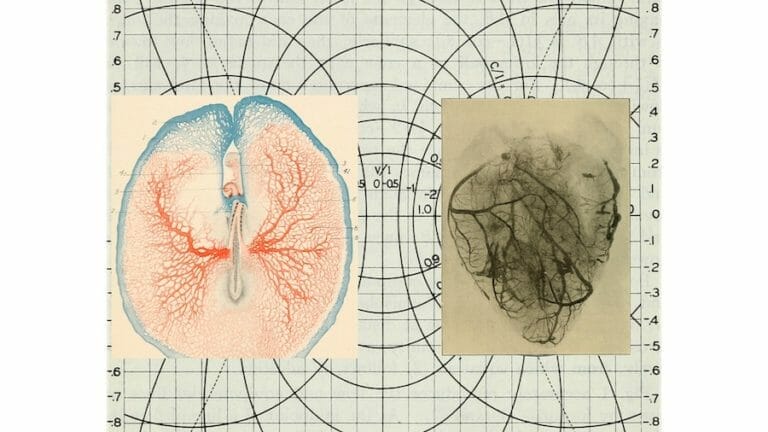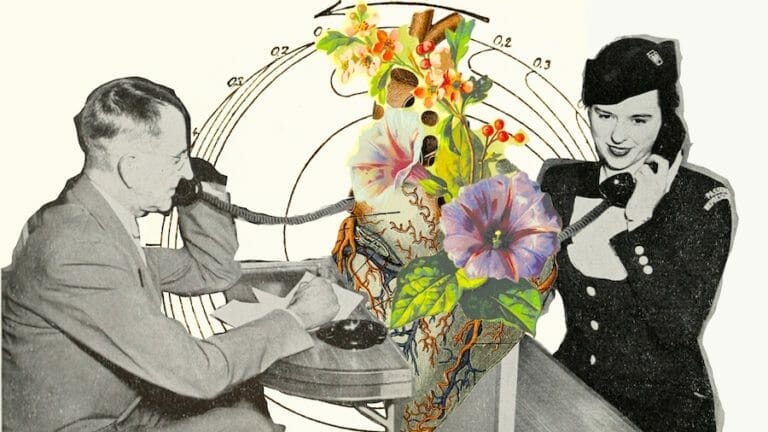We can get into how we reverse emotional trauma or the impact of it. I’ve got four or five steps that I recommend to people.
Step one
You can reverse the physical impact of trauma, you can change the epigenetics and reverse the physical impact through many of the naturopathic principles, healthy diet, and lifestyle principles. Do follow the healthy diet. Don’t just do psychology work to resolve the trauma. Consider the physical body, don’t throw out the physical things you can do.
If you’ve got leaky gut or food sensitivities or dysbiosis, if you’ve got high blood sugar levels, your circadian rhythms and good sleep is so important. Do what I call a chemical cleanup. If you know you’ve got some issues where you have got some biological markers that are going out, maybe the blood sugar is going a little bit higher, and maybe the cholesterol’s going high a little bit, go and see a naturopathic doctor. Check in and follow their recommendations.
Follow the healthy diet. That’s going to reverse the physical impact. When it’s done consistently over a period of time, you can reverse the epigenetics.

You can switch off the genes that are pro-inflammatory that have been switched on. Diet and lifestyle, that’s the beauty of epigenetics. You can reverse things, both ways. You can reverse things for the bad, and you can reverse them to the good,. That means we’re in control, and this is the brilliant message of Bruce Lipton that he popularized. Genes don’t determine your health, even if you’ve got DNA that might make you have the greater propensity for heart conditions, and so on.
The knowledge empowers you, because now you can do something about it. You can change your diet and lifestyle, there’s nothing deterministic about it, and that’s the same as if you’ve also got a lot of ACEs in childhood. So do the dietary stuff, do the physical, exercise and everything else, and look after your physical body.
Step two
We need to do a brain reset. The brain reset is, emotional trauma changes the neural pathways to increase that stress response, trigger the sympathetic nervous system, and essentially the amygdala, which is in the limbic system part of the brain. It’s the unconscious fear processing center. In traumatized people it is on high alert all the time. So we need to retrain the brain and reset that amygdala. Actually, I borrowed this from the New York Times, best-selling author and friend of mine, Ari Whitten. He has what’s called recharge rituals. These are essentially things that you would do every day that are going to put your body into a true state of calm relaxation.
I’ve got what I call the big four practices are things like qigong, yoga, Tai Chi, and meditation. They’re the big four because they have the most research behind them. It could also be singing, dancing, sunbathing, forest bathing. It could be painting. It’s everything that’s creative, no pressure, no judgment involved, no competition involved, and napping, sleeping, anything. We call it the Yin state in Chinese medicine, hobbies, grounding, being connected to the earth, joyful creation massage.
You need to be doing those daily. 20 minutes, twice a day, so you send the message to the amygdala that everything is okay now, and eventually. Just like Pavlov’s dogs, you can retrain the brain and body. The brain will get the message of, “Oh, we don’t need to be on this high alert, vigilant flight response every minute of the day,” but you’ve got to make up for the fact that you’ve had all this conditioning that’s probably not been relaxing.

These recharge rituals, everybody needs to be doing the daily, and if you’re not doing something like this every day, it’s going to get you. The stress will get to you and your body will start to break down because when we’re in that calm parasympathetic state, that’s rest, digest, detoxify. It’s when the body rejuvenates. They’ve scientifically shown that these practices reduce inflammation and even change neural inflammation and create new neural pathways. Those reset the brain. For some people, just doing that kind of ritual at home isn’t’t enough. You might need to go and get professional help if you’ve had fairly severe levels of going into the stress-fear pattern as a response to something that may have happened.
This is where things like neurofeedback, finding a practitioner, and NLP (neuro-linguistic programming). There’s a lot of NLP practitioners out there that actually work with kind of all the stress-related conditions.
Step three
Step two is reset the brain. So we’ve got reset the body, reset the brain. Step three, this is where we really get into actually resolving the emotional trauma, doing the exploration work, because even if you retrain the neural pathway, that doesn’t suddenly make you an emotionally aware person or aware of your unconscious patterns, or aware of how an ACE may have impacted you.
This is one of the misconceptions, I think, about meditation as well. Some of the core Eastern forms of meditation, which are actually forms of disassociating from feelings and thoughts, you start to identify with like big mind and you have amazing experiences of cosmic consciousness and things that may calm you down while you’re doing the meditation, but it doesn’t make you more emotionally mature..
Ken Wilber, who I worked with before, he’s one of the greatest theoretical psychologists on the planet at the moment. He was one of the ones responsible for bringing a lot of the Eastern practices to the West. What they found is a lot of the meditation practitioners, advanced meditation practitioners had issues going on emotionally, including inappropriate behavior with students and all kinds of things.

So, be aware that meditation is a tool, but it’s not going to suddenly mean that you’re an aware and emotionally evolved person. This is where you need to do things which come more from the contribution from Western psychology. It’s called a shadow work. If you want the kind of slightly pop-psychology version of the book written about that, it was Debbie Ford’s book, The _Dark Side of the Light Chasers_. If you’re interested in more academic side, it was Ken Wilber’s _Integral Psychology_, where he says, “Here’s the great stuff in the East, and here’s great stuff in the West, and you need both.”
Check your ACE score
So this exploration side where we really start to know thyself. That’s what people need to do. The first thing is go and check out what your ACE score is. You can do it for free. You could go online. It’s the original extended questionnaire that was done by the original researchers.
Step four
Step four includes things like journaling, explore. What ACEs did you have? What happened at the time? Is there anyone you can talk to? Did you change as a person in response to it? Did it change your behavior? Did it change your personality? Was there anyone else there to talk to you about it? Start writing about it because journaling has been scientifically shown to help psychologically. Are you a sensitive type? Do the free personality testing.
There’s a personality test called the Enneagram test, which is a personality test. There are nine different personality types. It’s just another way of exploring how trauma may have impacted you. You can do it completely for free at enneagraminstitute.com. There’s a book called _The Wisdom of the Enneagram_ by Don Richard Riso. It’s just another tool for exploring, it’s one of the things we’ve used a lot. There are things you can do at home as well, that kind of don’t cost too much.

Also, if you’ve never spoken to anybody about certain ACEs happening or happened, just speaking to a nonjudgmental trusted person can also bring things to the light and take the charge out of something if you’ve never talked about it before. If you’re interested in the science side, a brilliant book is C_hildhood Disrupted_ by Donna Jackson Nakazawa. She also tracks nine or 10 different patients and their stories.
Those are the ypes of things that you can do at home and really, it’s know thyself, who are you? Who are you on this planet? What drives you? What type of personality are you? This kind of thing.
Additional approaches to reverse trauma
So, there is also professional help that some people need, and that’s important if someone’s had a lot of trauma and they feel that they want to be helped in a more professional setting. Whatt resonates with one person is not going to resonate for another. Some people do great doing hypnotherapy to help emotional trauma. It works for them. Things like emotional freedom technique, thought field therapy, loads of information online about that. Also, EMDR, which is Eye Movement Desensitization and Reprogramming is another good technique.
There’s an increasingly popular thing called Trauma Incidents Reduction therapy, which people can pursue. What I encourage people to do, is go and research these things. Go online, speak to some of the practitioners, see how it works, hear what other practice patient’s stories are in relation and find out what resonates. It might be you have a synchronistic event that happens where you decide to look into this and suddenly, a TFT practitioner just shows up or something. So trust it. Right? Essentially, there’s plenty of help out there. There’s one called Family Constellations therapy. I’ll mention as well that people like Dr. Dietrich Klinghardt are into, and that’s for the inter-generationally inherited trauma. It’s group therapy as well.
It’s so interesting that to have a super healthy heart and a long, healthy lifespan, your subjective state, who you are in the world and why you do the things is so important. There’s an emotional component to every physical ailment and wellbeing. So if you’re emotionally healthy, you’ll be physically healthy, and there really is no differentiation between the two. It’s massive, but it’s interesting.
Final tips
Be aware about relationships. The research is really showing now that health, like happiness is a collective phenomenon. So it’s not just your own subjective personality and experience. It’s who you hang out with. This is where the work of HeartMath, for example, where we all have an electromagnetic field that’s a couple of feet outside the body. It’s big. It’s a hundred times more powerful than the field around the brain, and they’ve shown that people that you’re in proximity with you will synchronize to their field. The interesting thing is they have a 75% correlation between the emotional state of a person and the field.
Be as selective with your relationships as you are with your food and lifestyle choices

If you have good HRV, but you’re hanging out with somebody who’s always on the low side, it’s going to impact you, and that’s amazing. Essentially what we’re saying is that is shortening your lifespan. You’ve got to be as picky about other people as you are about your diets, and there are huge studies. You don’t just have to think about it electromagnetically. A landmark study in 2004, over 300,000 people showing that social support was a stronger predictor of survival than physical activity, body mass index, hypertension, air pollution, alcohol consumption, and even smoking 15 cigarettes a day. When I talked about energy vampires and things, it’s a real phenomenon. It was one of the most robust findings of psychoneuroimmunology. If you have conflict in your relationships and healthiness with the people around you, it’s inflammatory. It’s an inflammatory thing.
So the problem of OP, other people, watch out for it. Obviously, you want to be protecting yourself against abusive people without question, but sometimes it’s also, it’s the more subtle forms of abuse as well. Cultural abuse, the environment, all falls into relationships. If you’re in a very competitive business environment or school environment, that can be very draining and very unhealthy. You’re shortening your lifespan. Tony Robbins, the success coach says, “Who you hang out with is who you become.” It’s very true. So I leave people with that thought.
